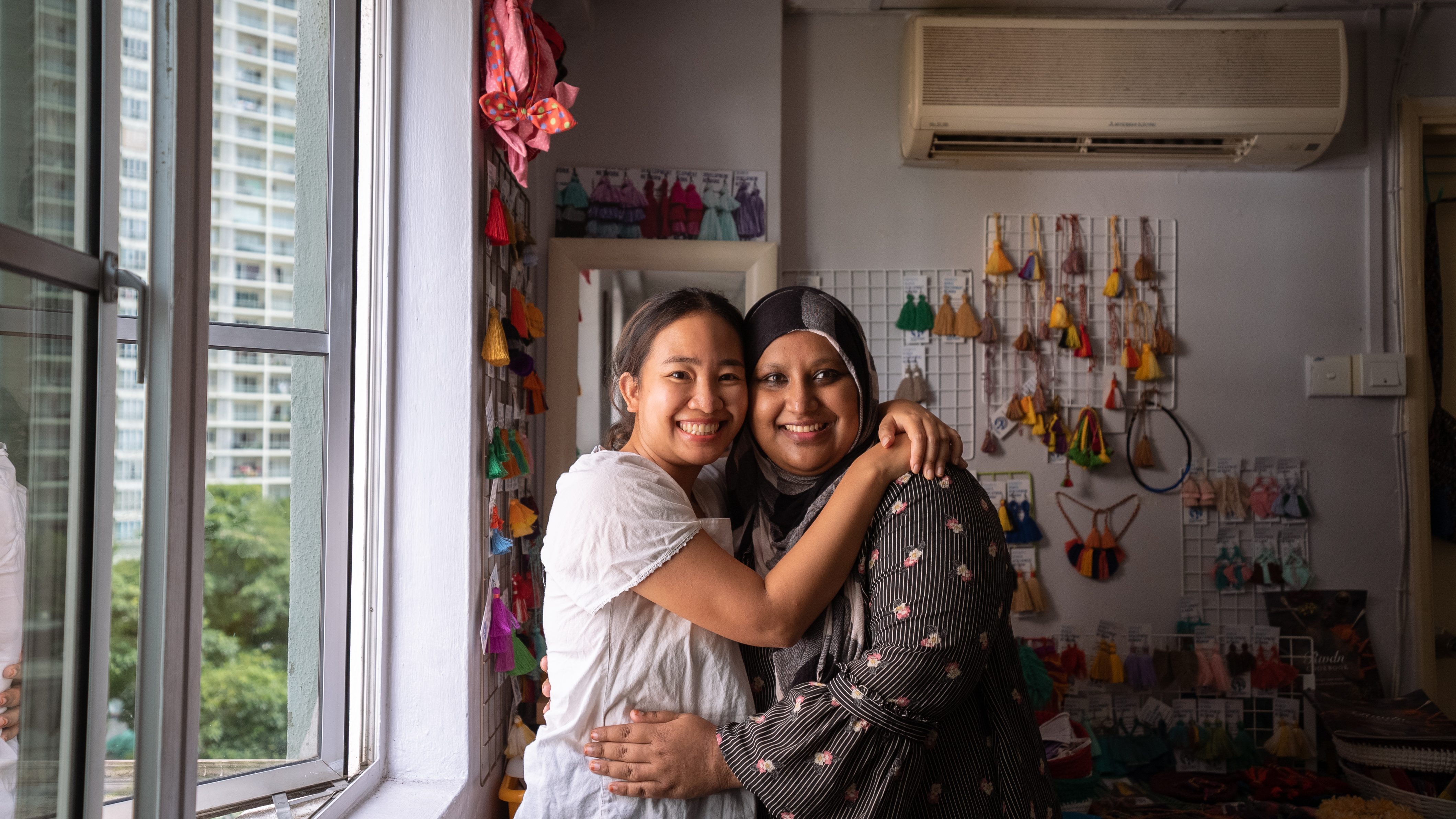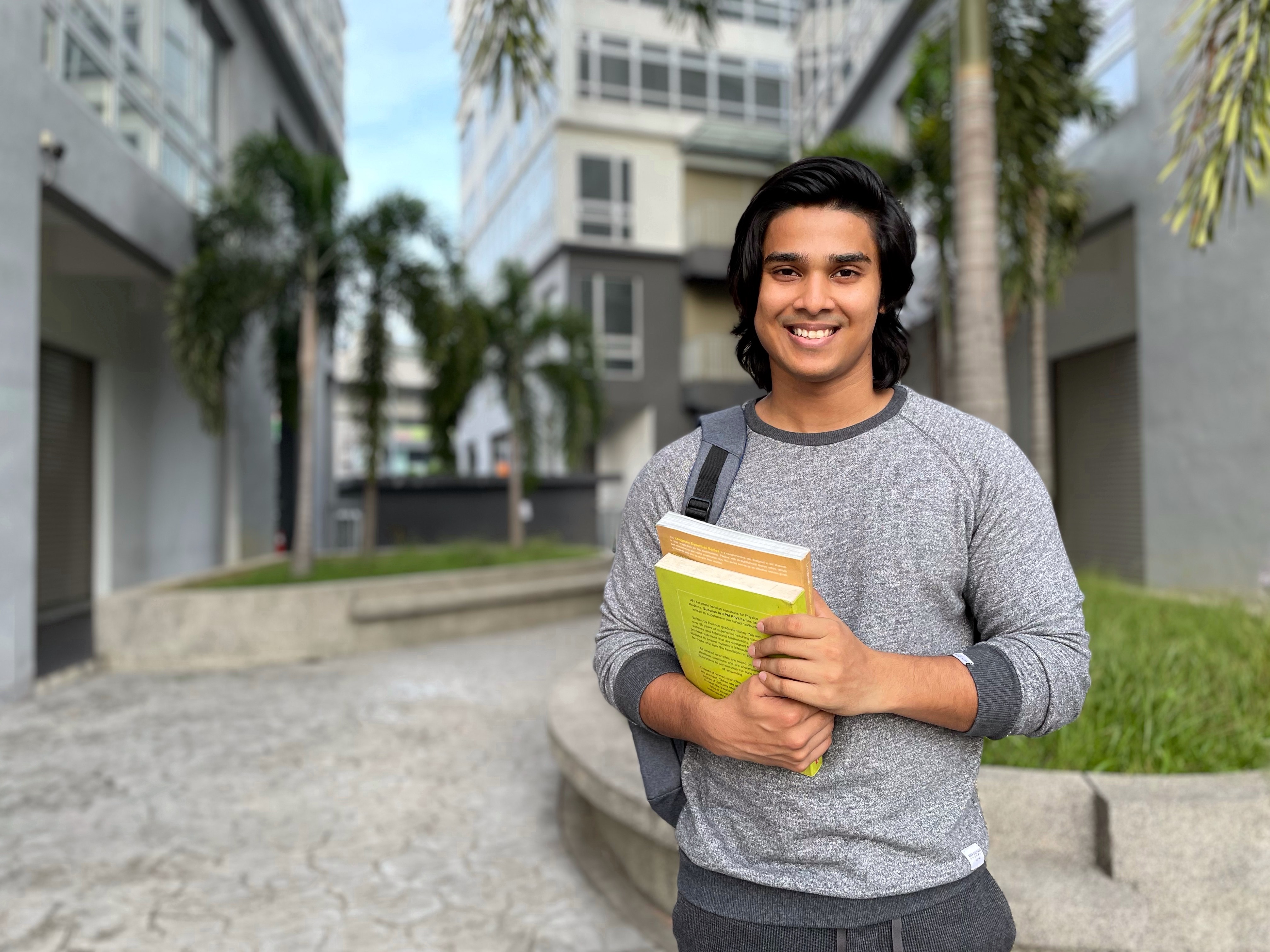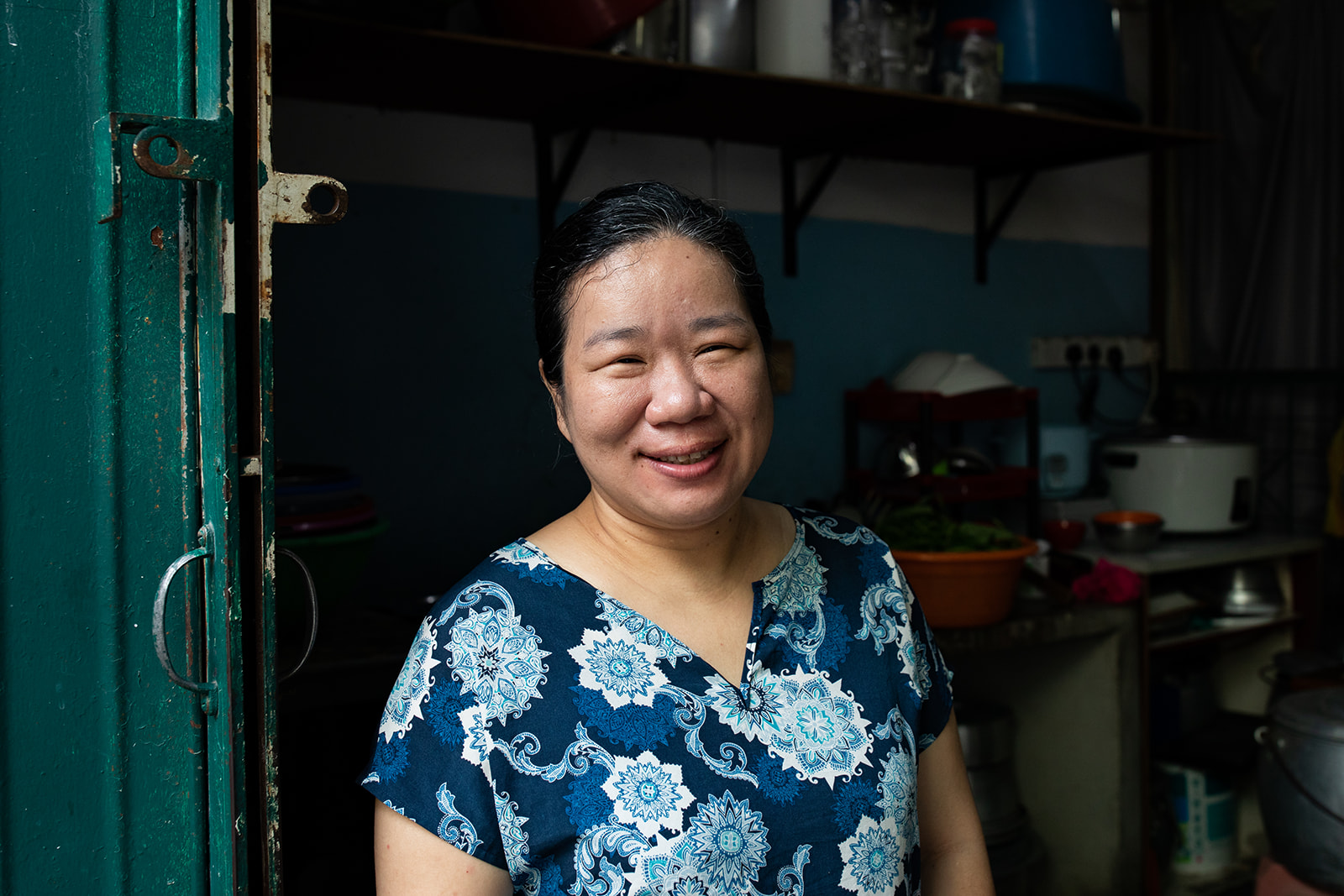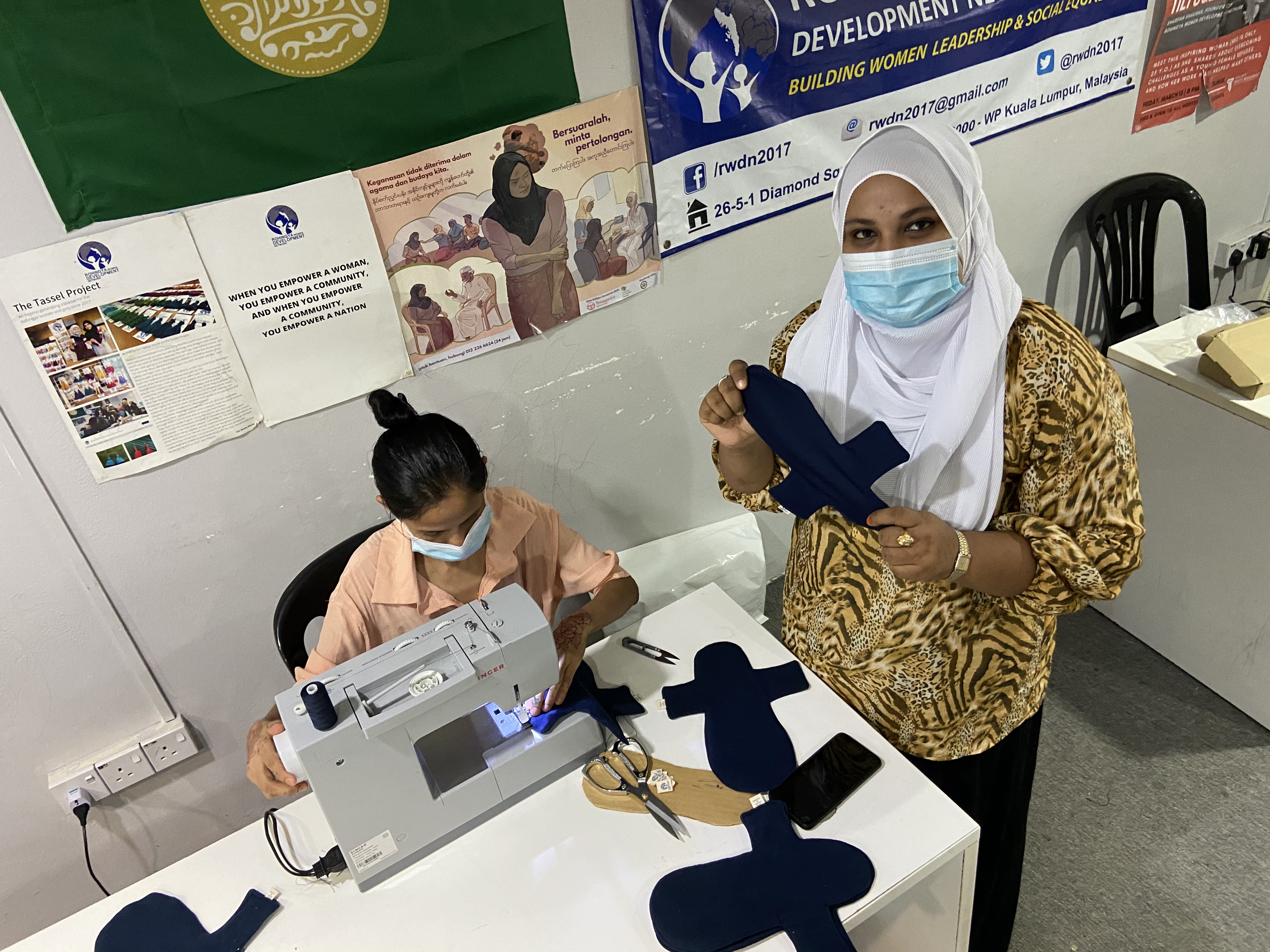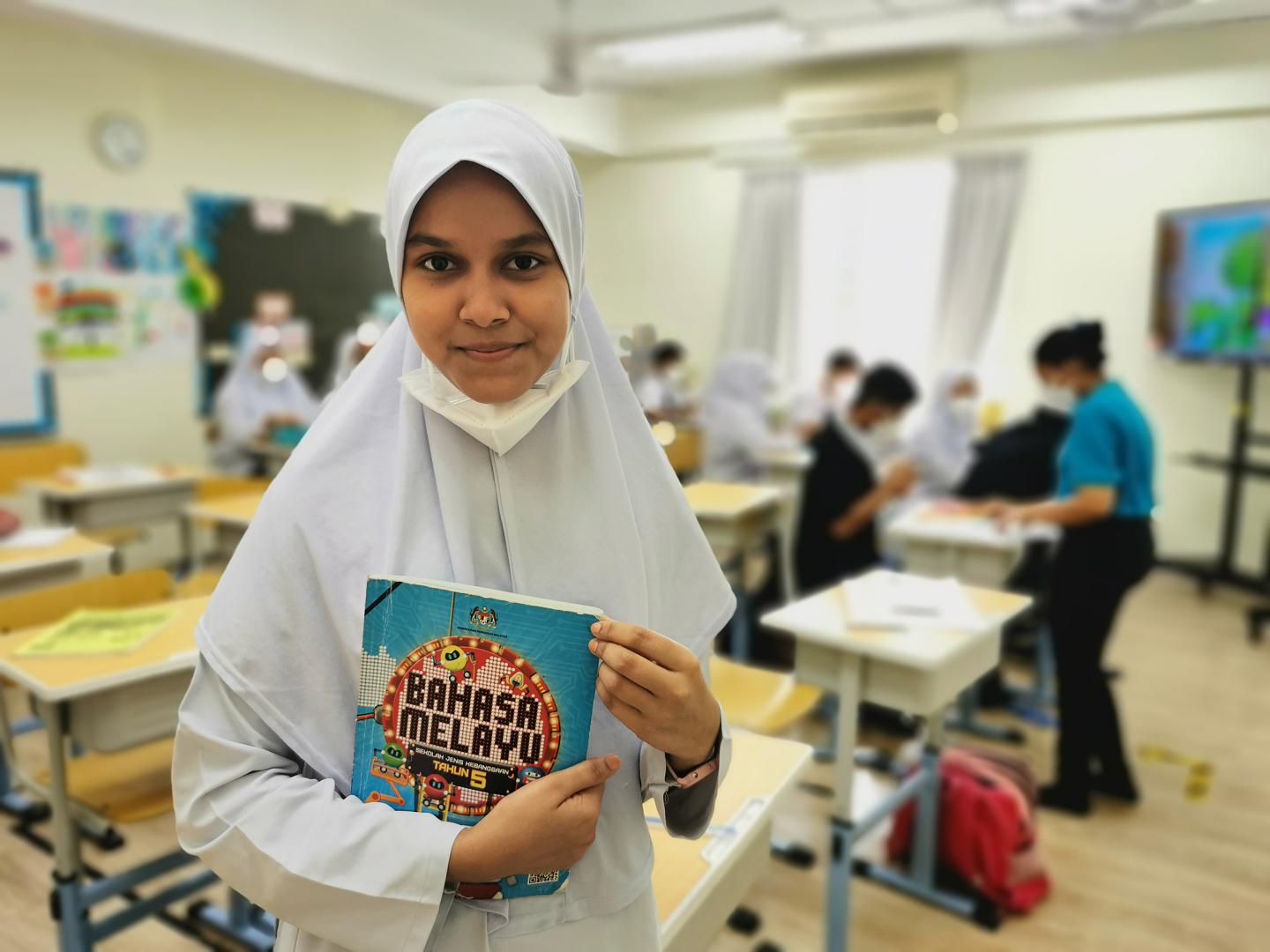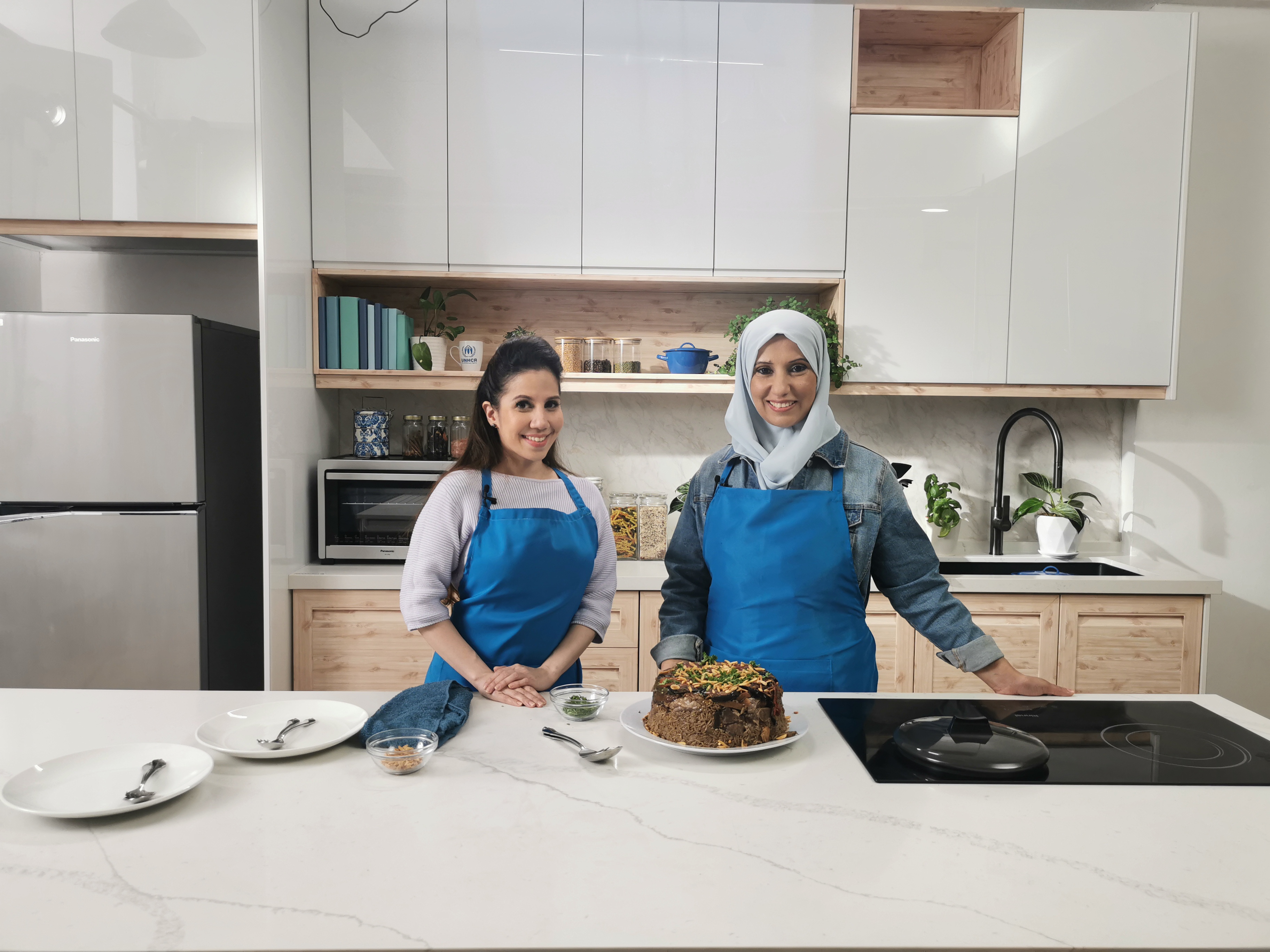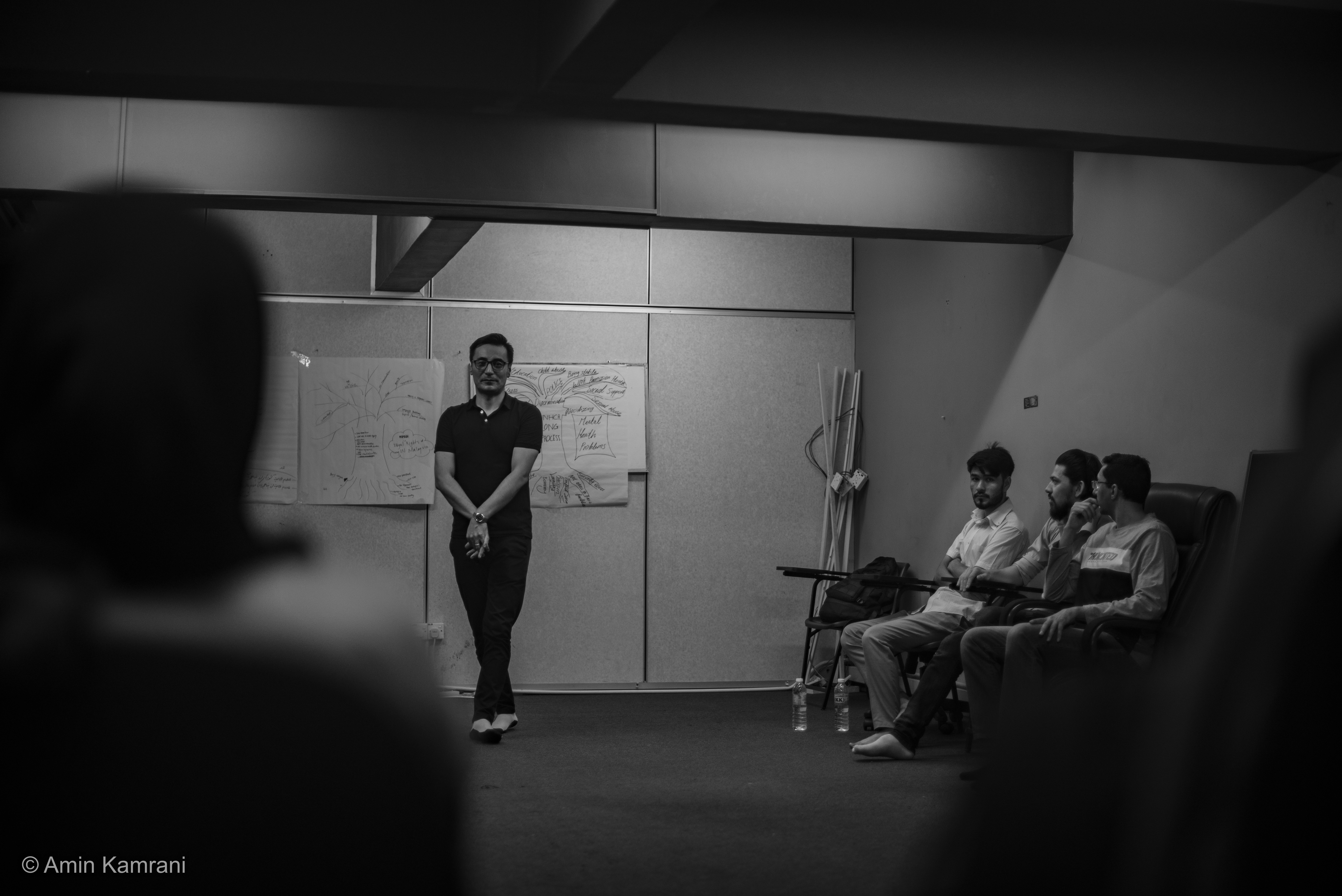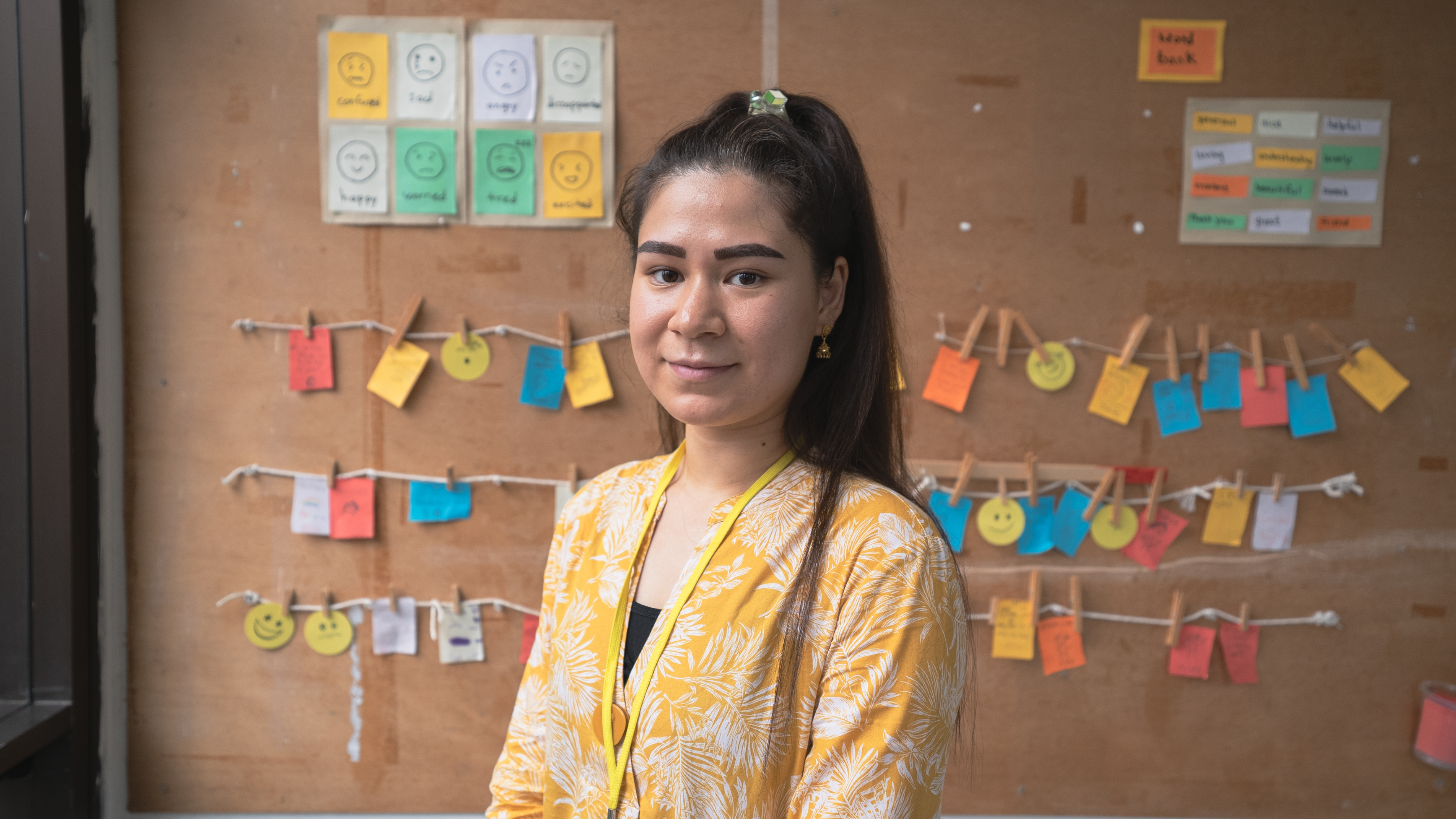Coping with COVID-19: Online support group provides emotional lifeline for refugee women
Coping with COVID-19: Online support group provides emotional lifeline for refugee women
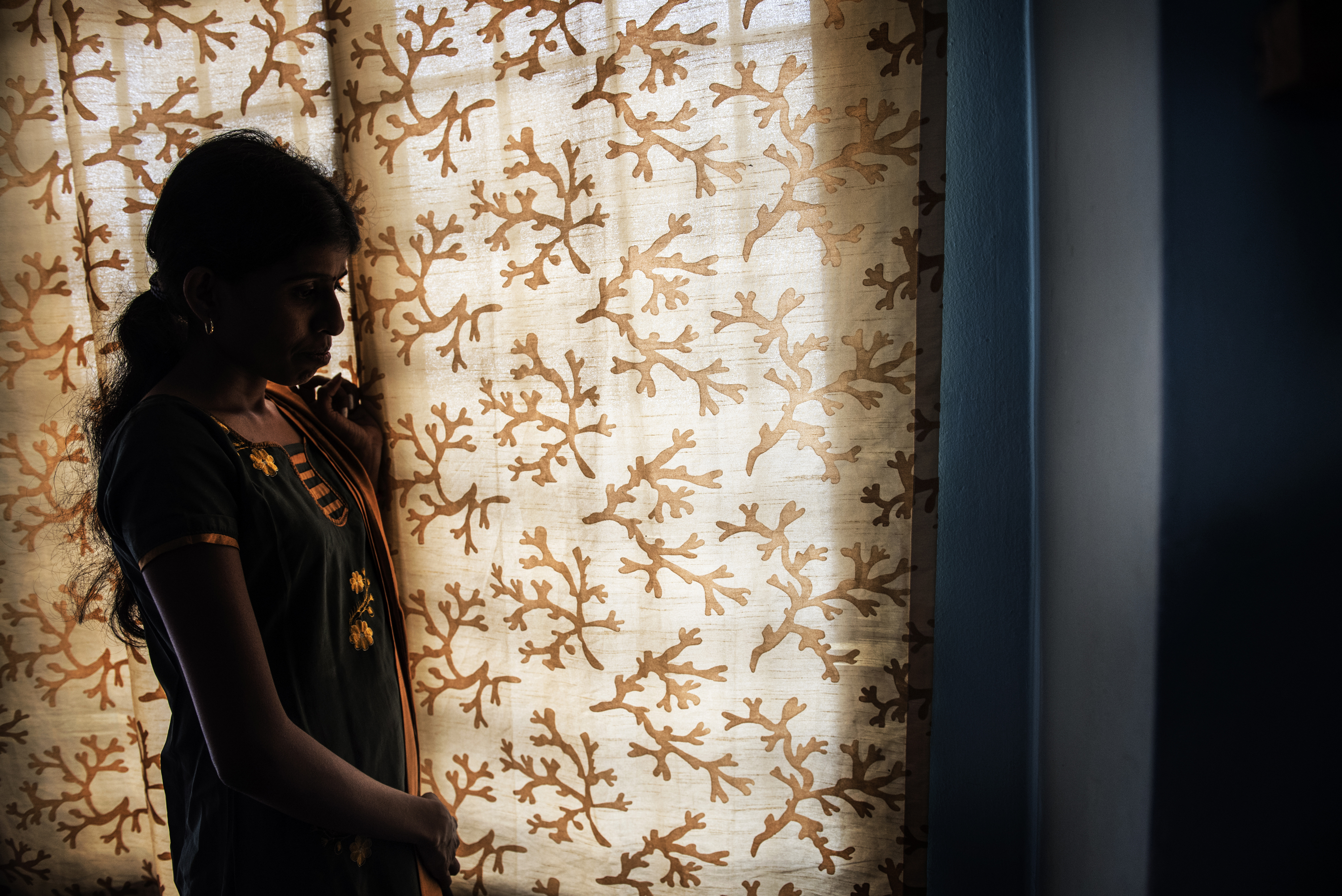
To be lost in the dark, and not be seen by anyone.
This was the powerful phrase used by refugee woman, Mina* about her struggles with mental health during the COVID-19 pandemic in Malaysia.
"Nobody could understand the darkness I have been through. I could see the people but I had no courage to call out for help, I felt lost and helpless,” said Mina.
Then Mina found an emotional lifeline - an online support group for refugee women. Joining the group helped Mina manage her depression and anxiety.
“This platform brought me light and showed me the way. I can dream of my future now because I am seen. I feel loved and heard again," she said.
Mina is part of the COVID-19 Women Support Project, an online psychosocial support group project by the University of New South Wales (UNSW) and UNHCR, the UN Refugee Agency in Malaysia. It aimed to create a safe space for refugee women to seek support and assistance on matters concerning their mental health and emotional well-being in a time of COVID-19.
The project began in August 2020 as concerns grew regarding the patterns of increased domestic abuse and family violence cases globally due to COVID-19 lockdowns.
“In light of this, we needed a platform to support the mental health needs of hundreds of vulnerable refugee women,” said Michelle Fong who heads the sexual and gender-based violence programme at UNHCR. “We also identified that lockdowns and physical distancing restrictions due to COVID-19 meant that these sessions needed to be done virtually if they were to benefit the greatest number of vulnerable women.”
16 refugee women leaders were selected to attend a month-long training session by UNSW and UNHCR on psychosocial support and gender-based violence response. These leaders were then appointed as focal points to facilitate eight online support groups, comprising refugee women from Afghanistan, Sudan, Somalia, Yemen, Pakistan, and Myanmar.
“We knew it was vital to engage empowered refugee women leaders themselves, working closely with both international and local NGOs, to provide this online platform supporting vulnerable refugee women,” said Fong. “We can already see the results of this refugee-led project in assisting refugee women cope with their anxieties and stress arising from the pandemic lockdown.”
These support group sessions are conducted virtually using the audio call feature on various messaging applications, where 15 to 20 refugee women are able to speak openly about a variety of mental health concerns, including grievances and challenges in coping during the pandemic. Each session lasts no more than 90 minutes and takes place three times a month.
Since the start of the project, over 1,600 refugee women in Malaysia from 11 to 60 years old have benefitted from attending at least one of over 280 sessions. Many attend these support group sessions religiously, and the improvement in them have been notably positive.
“As we compare our situations as individuals and as a group within our community before and after we joined this project, we really have recognized a great positive change. From isolated group members, knowing and caring less about each other, we are now a united group that provides valuable support to each other,” said Samia, a 43 year-old Sudanese refugee who is one of the project’s focal points. She also added that she feels privileged to be given the opportunity to work with other refugee communities and learn from the experiences of others.
Regular de-briefing sessions are held among the focal points and UNHCR as well as NGOs with expertise in mental health issues faced by refugee communities, such as Asylum Access, Tenaganita, and the Malaysian Social Research Institute (MSRI), to report or escalate any pressing matters from the support group sessions, especially if there are cases with protection concerns. For specific cases of need, the focal points are also trained to make referrals to NGOs, providing the people they serve with health, education, and livelihood assistance.
UNHCR plans to continue this project next year, expanding it to include more refugee communities in need. Fong said, “It is crucial that this continue to be a refugee-led, women-led programme, and we look forward to working with them to bring change to their families and communities.”
The far-reaching impact of the project on the refugee women’s well-being is clear.
“We now think we are one hand, we share and support each other, give advice, and call each other to attend the sessions punctually," said Maymun, a 35 year-old Somali refugee widow with four children.
“Through the group, we feel we matter. We have a voice and are pleased to have other women leaders there for us to make our voices heard.”
*Name changed to protect identity


